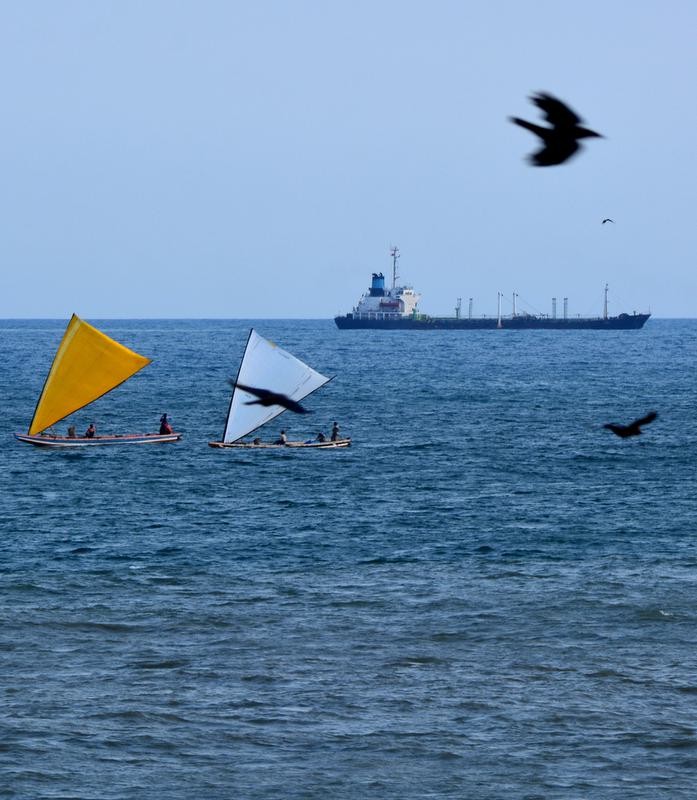Reforms in Merchant Shipping

- 10 Dec 2024
In News:
The Government is preparing to introduce several significant bills aimed at driving much-needed reforms in the shipping industry. Key among them are the Merchant Shipping Bill, 2024 and the Coastal Shipping Bill, 2024, both of which promise to bring transformative changes to boost the sector.
Context and Need for Reforms:
- Outdated Framework: The Merchant Shipping Act, 1958, and the Coasting Vessels Act, 1838, fail to address the current needs of the shipping sector, particularly offshore vessels.
- Regulatory Gaps: Inadequate regulation of offshore vessels, maritime training institutions, and welfare provisions for seafarers on foreign-flagged ships.
- Global Alignment: Need to align with international maritime conventions and modernize administration for competitiveness and better governance.
- Investment and Growth: Outdated laws hinder foreign investment and ease of doing business, necessitating a regulatory overhaul.
Key Features of the Merchant Shipping Bill, 2024:
- Ease of Vessel Registration:
- Reduces ownership threshold for Indian entities from 100% to 51%, enabling NRIs, OCIs, and foreign entities to invest.
- Facilitates registration of vessels chartered by Indian entities under the "bareboat charter-cum-demise" system, promoting capital-deficient entrepreneurs.
- Temporary registration provisions for vessels destined for demolition, boosting India's ship recycling industry.
- Expansion of Vessel Scope:
- Broadens the definition of "vessel" to include all types of mechanized and non-mechanized crafts, such as submersibles, hydrofoils, and Mobile Offshore Units (MOUs).
- Ensures comprehensive regulatory oversight, particularly in the offshore sector, enhancing transparency and safety.
- Coastal Security:
- Strengthens coastal security by empowering authorities to issue instructions to all types of vessels, addressing vulnerabilities highlighted by incidents like the 26/11 Mumbai attacks.
- Marine Pollution Measures:
- Incorporates global standards like the MARPOL convention to address marine pollution.
- Introduces measures such as reducing sulphur content in marine fuel and banning single-use plastics on Indian ships.
- Launch of the ‘Swachh Sagar’ portal to ensure proper disposal of ship-generated waste.
- Seafarer Welfare:
- Expands welfare provisions to include Indian seafarers working on foreign-flagged ships, offering protections under the Maritime Labour Convention (MLC).
- Ensures better working conditions and safety standards for a growing workforce of Indian seafarers abroad.
- Maritime Training Regulations:
- Establishes a legal framework to regulate maritime training institutions, addressing the rise of unauthorized institutes post-liberalization.
- Ensures standardized, high-quality education and eliminates fraudulent practices.
Coastal Shipping Bill, 2024:
- Focus on Commercial Utilization of Coastal Waters:
- Distinguishes between the technical regulation of ships and the commercial utilization of Indian coastal waters.
- Aims to streamline licensing, operations, and coastal planning, enhancing the integration of inland and coastal shipping.
- Alignment with ‘Sagarmala’ Program: Supports the promotion of coastal shipping through better infrastructure and connectivity, in line with the government's ‘Sagarmala’ initiative, which boosts port connectivity and coastal trade.
International Conventions India Has Ratified:
- MARPOL: Focuses on preventing ship-based pollution.
- Maritime Labour Convention (MLC): Protects seafarers' rights and ensures fair working conditions.
- Bunker Convention: Addresses liability for oil pollution damage.
- Wreck Removal Convention: Mandates safe removal of shipwrecks.
- Civil Liability Convention: Establishes liability for oil pollution incidents.
Significance of the Reforms:
- Modernized Framework: Aligns India’s maritime laws with global standards for enhanced competitiveness.
- Economic Growth: Encourages foreign investment and entry into the shipping sector by removing regulatory barriers.
- Environmental Sustainability: Focus on combating marine pollution and ensuring sustainable shipping practices.
- Enhanced Safety and Security: Strengthens coastal security and ensures stringent safety regulations for vessels.
- Seafarers’ Welfare: Extends benefits and protections to Indian seafarers working globally, ensuring better working conditions.
- Maritime Education: Provides a robust regulatory framework to ensure high-quality, standardized maritime training.
